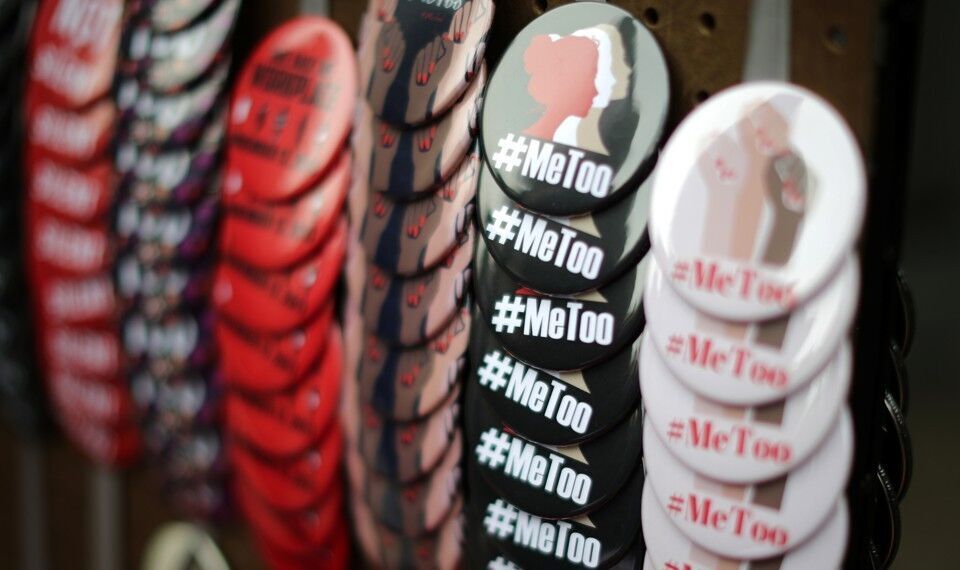
Communication goes both ways
By Laura Alden, Contributor
Content warning on this article for mentions of sexual harassment and assault.
The #MeToo movement is important; as women, we’re fed up with sexual harassment. We’re fed up with men trying to convince us to have sex after we say no. As we have seen recently in “Grace’s” story regarding her date with Aziz Ansari, well-known actor and feminist, in which she felt violated and left in tears, we’re also fed up with the skewed power dynamic and walking away from dates unsure if we have just been taken advantage of.
I have been in Grace’s shoes; I have experienced some men’s sexual tunnel vision and walked away from experiences feeling like I had ridden a roller coaster I wasn’t sure I bought a ticket for. However, during the morning after, I looked not straight towards the men I had been with. Instead, I turned to myself to make sure I had made all the right moves to protect myself, and to make sure I had communicated in a way that would get all my needs met. Had I said no strongly enough, or at all? Had I used proper language to express my needs clearly? I’d say that 99 per cent of the time the answer was a no. I had become a deer in the headlights, and, without the men I was with knowing how to visually recognize a woman freezing up or what that felt like during physical relations, the sex had continued as normal, without any check-ins. Of course, there have also been times when I raised my concerns and needs to previous partners and they fell upon deaf or defensive ears. I walked away then, as I knew my needs would never be met by them.
We have grown up in a world where people are taught to think that men are sexy when they are strong and take charge, and that it’s normal for women to say no just to play hard to get. This world is slowly changing, but the key word here is “slowly.” Aziz Ansari is an example of putting the cart before the horse, thinking that the idea that wearing a pin that states the words “Time’s Up” will make this change so quickly. His wearing of the pin was done with the best intentions, I believe, but he is a prime example of what happens when best intentions exist without the underlying foundations of proper communication. He is not a monster, and should not be compared to cruel men like Harvey Weinstein.
Ansari is a man who was brought up in a world with unclear sexual rules, with social norms dictated by porn, movies, and television, along with a blanket of shame that covers questions like “Can I kiss you?” or “Do you want to have sex with me?” These are all made worse with a lack of learned human tools like vulnerability and truthful, open communication.
Playing it cool is the game in dating, and that works against every side. It keeps men from softly asking if they can touch us instead of playing it strong and fearless, and it keeps women from saying “What you are doing makes me afraid,” in real time, instead of the day after in a text message.
We are pushing for consent, and for these vulnerable questions to be asked. At the same time, we are pushing against the social norms that have been around for years. This is not an excuse, this is reality. Habits are hard to break, and instilling fear through public shaming is not the way to go; patience, understanding, and, above all, nonviolent communication to get our goals met, is. We don’t have to have sex any time we aren’t feeling it, but should open communication to our partners or one-night stands to figure out what went wrong after the fact instead of throwing blame and shutting everything down. We must face their flaws, and our own, to grow and understand what we want and how to get it. These words are not meant to discredit women who have experienced sexual assault or rape. These are serious, hurtful actions. However, in the seemingly grey area experiences, like with Grace and Aziz, better communication is key—as long as both sexes are willing to listen. We need to start giving more men the benefit of the doubt while firmly leaving those who don’t deserve it.
It is noted in Grace’s account that she did protest to Aziz’s actions, but the passive, non-confrontational ways in which she did (pulling away, not moving) fits into the shy, hard-to-get persona that is stereotyped to women and continues to muddle the line between consent and sexual expression. We cannot expect men to read our minds, mumblings, or mixed signals, but we can expect men to listen to us when we raise our hands and firmly say “No, I do not want sex right now. Stop. Now.” What would it have been like if Grace had said “No, no sex. I am very uncomfortable right now because of your actions. Either we keep our clothes on, or I am leaving” and stuck to it? These words can be hard to say in real time, but it’s up to women to learn how to say them clearly, strongly, and without violent aggression, or laughing to lighten the tension. We must rise to the challenge of leaving a situation, but only after we know our properly-communicated needs will not be heard. It’s up to us to create a strong, clear, non-aggressive “No.” Only when this is properly established will men listen and accept it.

